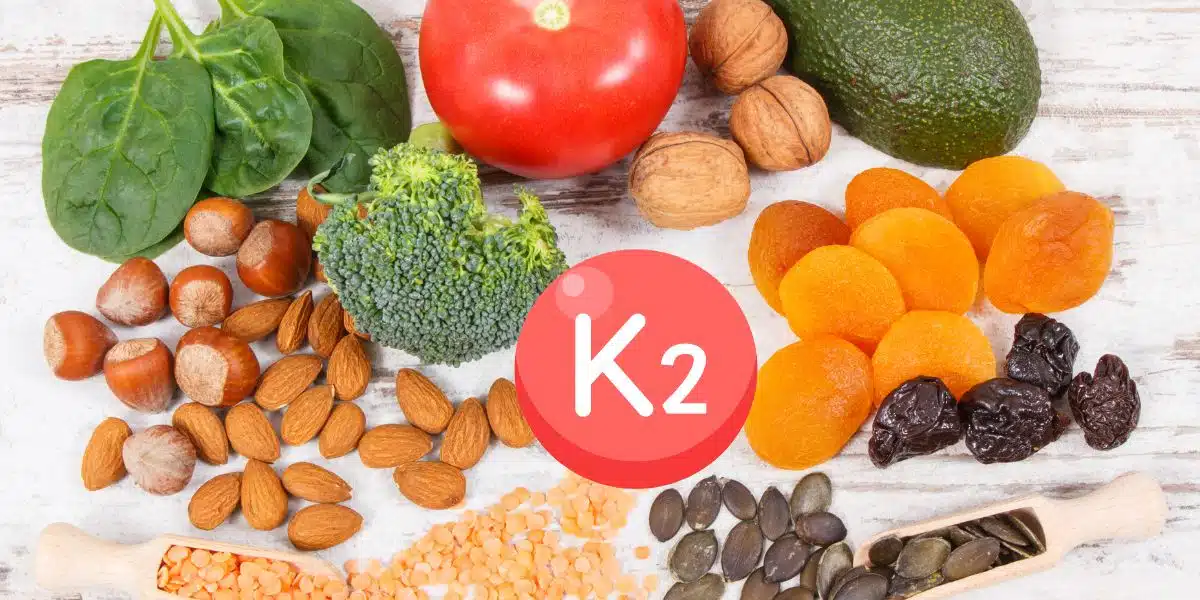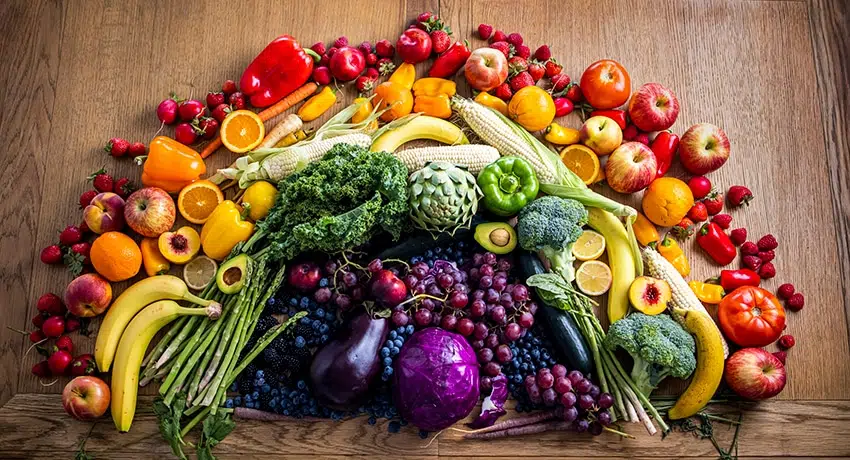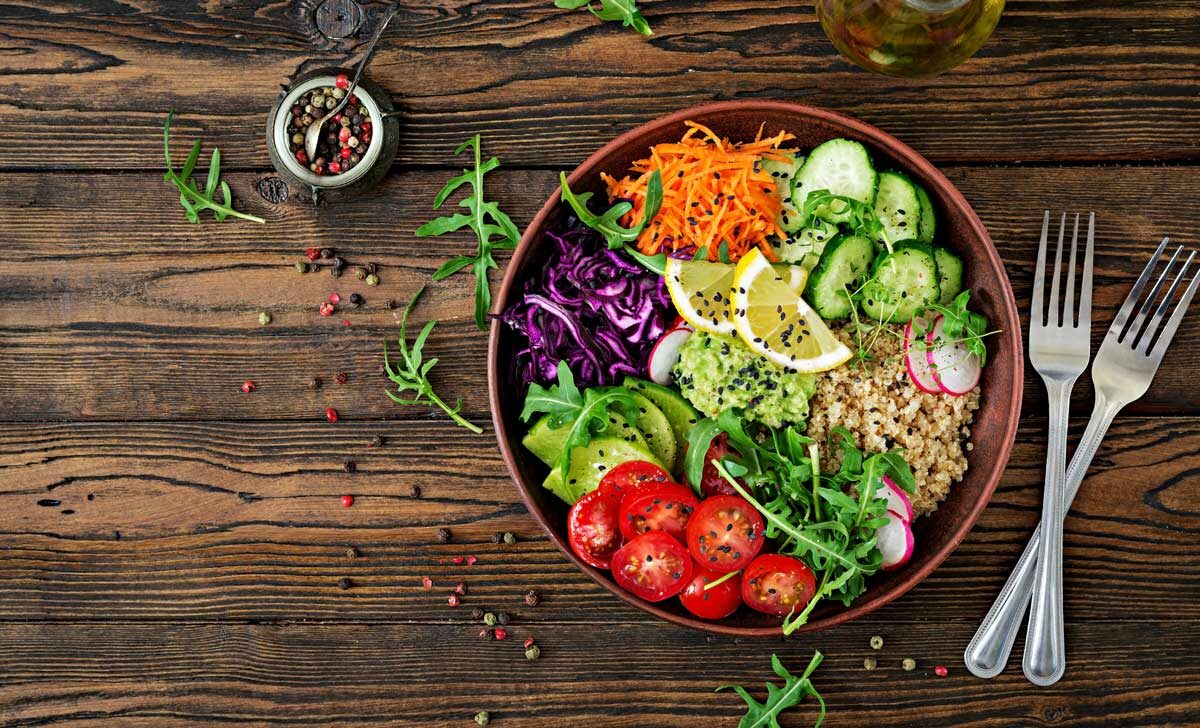The food that men eat plays a crucial role in preventing chronic diseases like heart disease, cancer and diabetes. Moreover, it also helps in maintaining a healthy weight.
Eating a diet rich in foods that provide the nutrients that men need will help them live longer and be healthier. Read on to know 7 foods that you should include in your daily diet.
1. Lean Meat
Lean meat, especially beef and lamb, can be a valuable source of protein, as well as vitamins and minerals like vitamin B12, niacin, zinc and iron. However, they should be eaten in moderation to avoid getting too many calories and saturate fats.
Meat is a good source of nutrients but if it is too high in saturate fats and sugars, it can have a negative effect on your health. A diet base on low-calorie foods and lean meats can help you lose weight, keep your cholesterol level in check and reduce your risk of heart disease.
The muscle in meat is about 75% water, although that varies according to the cut of meat, 20% protein and 5% fat, carbohydrates and minerals. However, some cuts of meat contain extra fat around the muscles and bones, as well as the skin of poultry.
It is important to choose a variety of lean cuts when preparing meats. Chicken, turkey and fish are all excellent choices as they are low in fat. It is also a good idea to shop for meat that is organic, says Noom.
2. Fresh Vegetables
Fresh vegetables are a great way to get all of the vitamins, minerals and antioxidants you need. They’re also a great source of fiber, バイアグラジェネリック helps prevent colon cancer and regulate your blood sugar levels.
Those who consume more fruit and vegetables are at lower risk for cancer, heart disease, stroke and mental decline. In fact, new research shows that you can live longer by eating five servings of fruits and vegetables per day.
In addition, it’s important to choose vegetables that are high in nutrients like lutein and beta-carotene. These antioxidants are known to help reduce the risk of prostate cancer and enlarge prostates.
For example, broccoli and kale are good sources of lutein. And they are low in sodium and fat.
In addition, they’re high in vitamin C and are full of phytochemicals. These compounds improve immunity and vision. Other veggies that are rich in these nutrients include carrots, sweet potatoes and orange bell peppers.
3. Fruits
Fruits are a great source of antioxidants, fiber and other nutrients that can benefit your health. They also help to keep you sated and satisfied, which is important for staying on track with your diet.
The good news is that the American Heart Association recommends a diet rich in fruits and vegetables, which are link to a lower risk of several chronic health conditions, including heart disease and cancer. In fact, researchers have recently determine that a healthy diet consists of five servings of fruit and two servings of vegetables every day.
Another recent study suggests that eating fruit regularly may cut your risk of cardiovascular disease and death by 32 percent. The research took a look at nearly half a million Chinese adults and measure how much they consume of different types of fruit over the course of seven years.
Researchers found that people who ate more than five servings of fruits and vegetables every day had the lowest risk of death from any cause. They were also less likely to die from respiratory disease, cancer or heart disease.
4. Nuts
Nuts are a great source of protein, healthy fats, vitamins and minerals like copper, magnesium, folate, potassium and niacin. They can help prevent diabetes, heart disease, cancer, obesity and a range of other health problems.
They’re also a rich source of omega-3 fatty acids, which is helpful for preventing inflammation and heart disease. They’re also good for reducing lipid levels, improving cholesterol, and blood vessel function.
Eating a handful of nuts a day can reduce your risk for cardiovascular disease, according to a study publish in the New England Journal of Medicine. It also increases your HDL, or “good” cholesterol, while decreasing tiny LDL particles.
Another recent study suggests that eating a few handfuls of walnuts a week can improve the quality of male sperm, helping to prevent infertility. Researchers found that nut eaters had 16 per cent higher sperm counts, with improvements in vitality and motility.
In addition, frequent nut consumption is link to lower body mass index (BMI) and waist circumference, as well as an increase life span. In fact, a Spanish study suggests that increasing your daily nut intake by just one serving, or 14 grams, a day could boost your chances of living longer.
5. Whole Grains
Whole grains are essential for healthy eating because they offer a balance package of nutrients like vitamins, minerals, protein, fiber and other plant compounds. They’re also a good source of antioxidants, lignans, phenolic acids and phytoestrogens that can help prevent diseases and improve overall health.
One study found that consuming three servings of whole grains a day can lower your risk of death by up to 20%, which is a great reason to eat them! In fact, researchers from Harvard University conduct a meta-analysis that look at previous studies and link whole grains with a lower risk of death from cardiovascular disease, cancer and all causes.
Another benefit of whole grains is that they help support better digestion. They give stools bulk and may also act as prebiotics that feed your beneficial gut bacteria.
The dietary fiber in whole grains can also decrease your risk of developing chronic inflammation, which can lead to heart disease, diabetes and cancer. In addition, カマグラ can help control blood sugar levels and increase feelings of fullness between Partner.
Fortunately, finding whole grains at the grocery store can be easy, as many mainstream brands have included them in their products. The key is to look for labeling that says “whole grain” or a similar term, and ensure the product has 100% of the original kernel – bran, germ and endosperm – intact.
6. Seafood
If you want to live longer and be healthier, it’s important to include seafood in your diet. It’s a nutrient-dense food that contains plenty of protein and essential vitamins and minerals.
Eating seafood regularly can help reduce the risk of heart disease, cancer and dementia in men. It can also increase cognitive function and improve sleep quality.
The best seafood includes oily fish, such as salmon, trout, mackerel and sardines. They contain omega-3 fatty acids that are good for the heart.
In addition, they can help lower the risk of diabetes and osteoporosis. They also provide vitamin D which helps maintain healthy bones and muscles.
Another benefit of seafood is its ability to boost your immune system and help fight off colds, flu and viruses. It’s also high in protein and a good source of selenium, zinc, vitamins B and D, and phosphorus.
The American Heart Association recommends eating fish two times a week for improve cardiovascular health. This is especially true for those with high blood pressure, heart disease or diabetes.
7. Coffee
Coffee is a popular beverage worldwide that has been around since ancient times. It has many health benefits, including helping to prevent heart disease and liver cancer. It also helps to keep you slim.
Several studies have found that drinking coffee regularly reduces the risk of developing Parkinson’s disease and Alzheimer’s disease. This is probably because it contains antioxidants that can help protect brain cells from damage.
Aside from this, coffee has also been link to a lower risk of type 2 diabetes and cardiovascular diseases. It also has chlorogenic acid that reduces glucose absorption and over time, can aid in weight loss.
It has also been link to a lower risk for erectile dysfunction and it may help men improve their sexual function. It is recommend that men should drink two cups of coffee daily.
Aside from this, it can also be a good source of energy. Caffeine is a stimulant that can boost your alertness and improve your concentration and memory. It can also help you stay awake for long periods of time. However, it is important to remember that too much caffeine can cause anxiety and other mental disorders. It is best to consume coffee in moderation and avoid drinking it late at night.




















